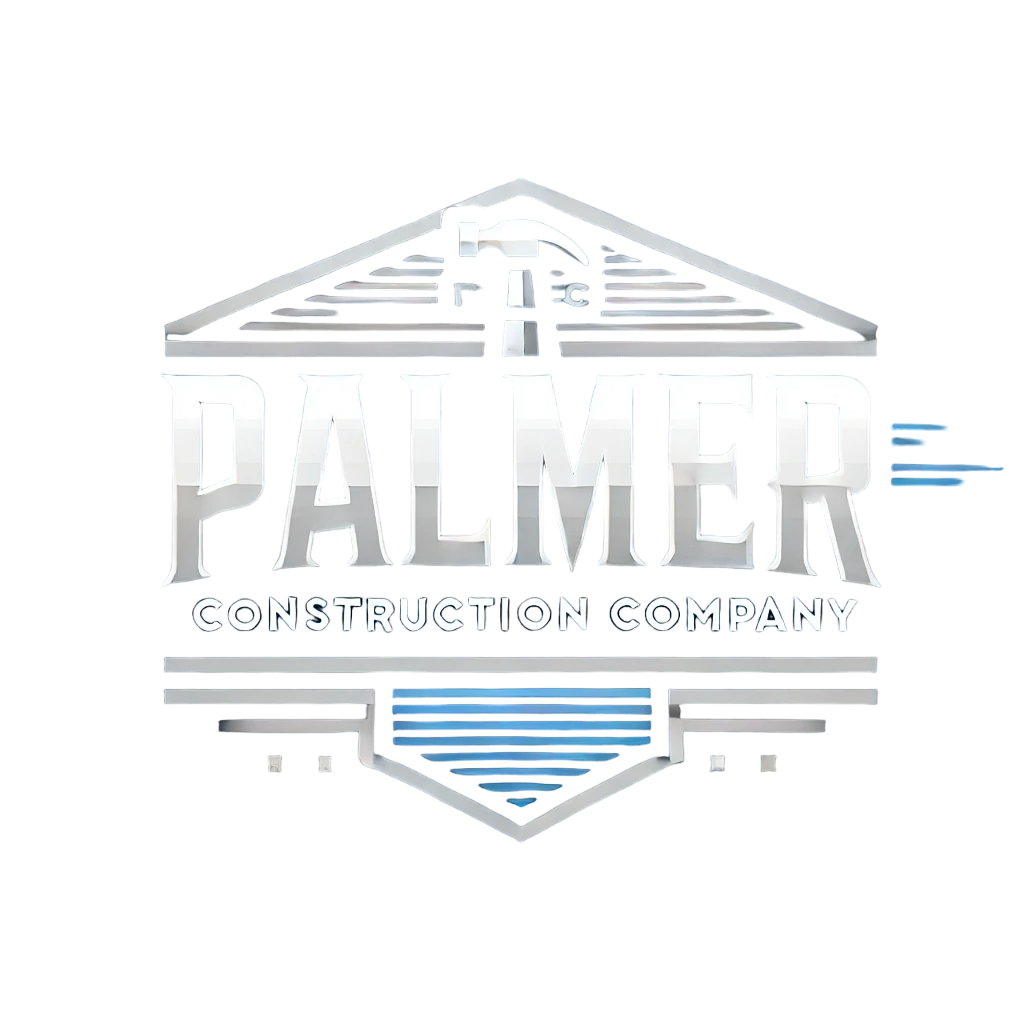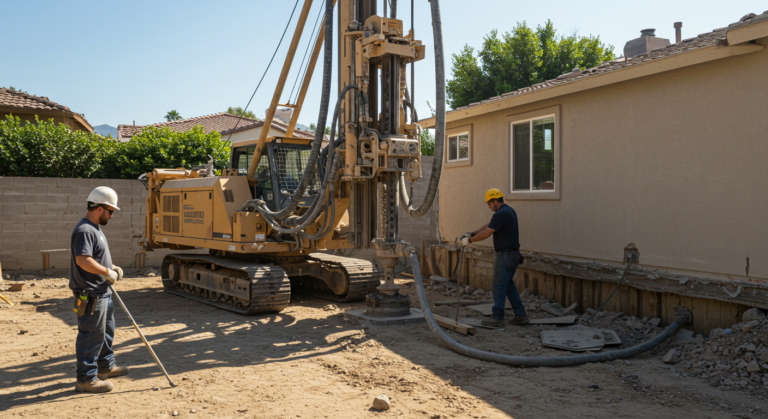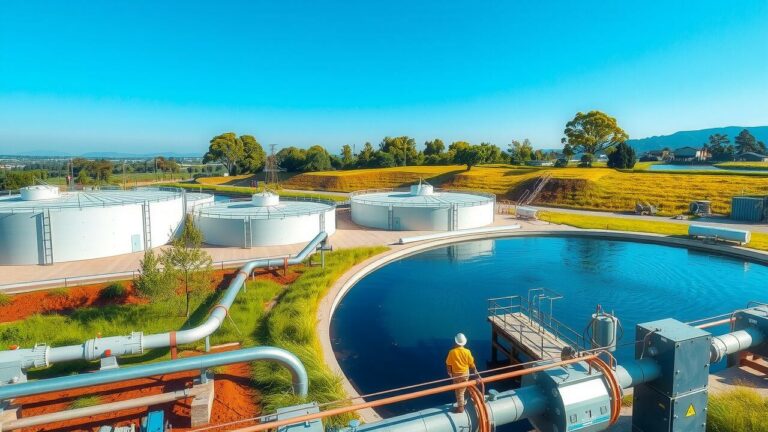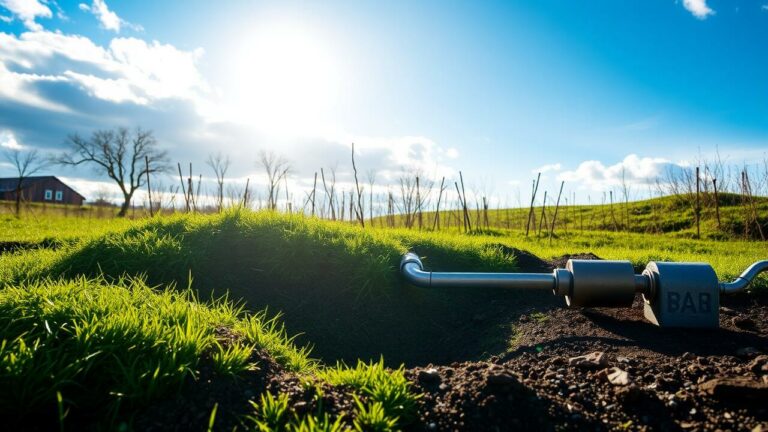Efficient water management is crucial for addressing the global challenges posed by water waste and pollution. The Top Waste Water Products for Efficient Water Management in 2025 play a significant role in enhancing water efficiency and ensuring high water quality. These innovations focus on advanced techniques for cleaning water, which contribute to effective waste management practices. Water recycling systems are becoming increasingly vital, allowing for the reuse of treated water and minimizing the demand for fresh water sources. As communities seek sustainable solutions, the integration of these top products not only helps in mitigating water pollution but also supports the broader objective of securing clean water for future generations.
Top Waste Water Products for Efficient Water Management in 2025 | Importance of Efficient Waste Water Solutions
Efficient wastewater management is crucial for maintaining the integrity of water resources and ensuring the availability of fresh water for future generations. Top Waste Water Products for Efficient Water Management in 2025 aim to enhance waste disposal and waste removal processes, facilitating better water usage in various sectors. Water utilities play a vital role in managing water supplies, and the integration of innovative technologies improves their ability to recycle wastewater effectively. These advancements help to minimize the impact of wasted resources on both the environment and public health.
The importance of adopting efficient wastewater solutions cannot be overstated, as they directly influence the sustainability of water resource management. By focusing on wastewater recycling and innovative treatment systems, communities can significantly reduce the burden on natural water supplies. Top Waste Water Products for Efficient Water Management in 2025 will not only enhance the effectiveness of water utilities but also promote responsible water usage practices. With the ongoing challenges in waste disposal, these solutions represent a pivotal step towards a more sustainable future in water supply management.
| Product Name | Type | Key Features | Application Area |
|---|---|---|---|
| EcoClear Wastewater Treatment System | Advanced Treatment | Biological filtration, Energy-efficient, Modular design | Residential, Commercial |
| AquaRecycle | Water Recycling | High recovery rate, Compact unit, Automated controls | Industrial, Municipal |
| SmartSewer Monitoring System | Monitoring Technology | Real-time data analysis, Predictive maintenance, Sensor integration | Municipal Utilities |
| ClearWater Ultraviolet Disinfection | Disinfection Technology | Chemical-free treatment, Effective pathogen removal, Low energy consumption | Wastewater Treatment Plants |
Key Challenges in Waste Water Management
The aging water infrastructure poses a significant challenge in wastewater management. Many systems are not designed to handle the increasing volumes of industrial waste and organic waste generated by growing populations and industries. This not only complicates the treatment process but also affects the quality of clean water and sanitation provided to communities. Addressing these issues is vital for achieving cleaner water outcomes and ensuring efficient water distribution systems, making it essential to evaluate and invest in Top Waste Water Products for Efficient Water Management in 2025.
Regulatory compliance adds another layer of complexity to wastewater management. Stricter environmental regulations aim to ensure clean drinking water for all, thus pushing facilities to upgrade their systems for treating wastewaters. The challenge lies in balancing cost with adherence to the latest standards while implementing innovative technologies that promote water conservation. As municipalities and industries strive for cleaner water and improved wastewater treatment, the integration of advanced solutions such as those anticipated among the Top Waste Water Products for Efficient Water Management in 2025 will become increasingly important.
Innovations in Waste Water Treatment Technologies
The landscape of wastewater treatment is evolving rapidly, driven by the urgent need for safe water solutions amid rising environmental concerns. Top Waste Water Products for Efficient Water Management in 2025 highlight advancements in purifying water and enhancing sewage management processes. Innovative technologies are being developed to facilitate wastewater reuse, allowing treated water to become a viable source for potable water and industrial applications. Wastewater treatment facilities are increasingly adopting advanced filtration systems and bioreactors, which improve the efficiency of wastewater processing. As municipalities and industries prioritize the reuse of wastewater, these innovations play a crucial role in promoting sustainable practices in water management and ensuring the availability of clean, safe water for future generations.
Advanced Filtration Systems
Advanced filtration systems play a crucial role in the landscape of top waste water products for efficient water management in 2025. These systems effectively address challenges posed by hard water and industrial wastewater treatment, providing robust solutions for both domestic and industrial waste water. Their design enhances water reuse efficiency by removing contaminants and ensuring that treated water meets stringent quality standards. With a focus on clean water sustainability, these filtration systems significantly contribute to sustainable wastewater management, thereby promoting a healthier environment and improved community health.
Innovations in filtration technology are leading to more efficient water management practices. Advanced systems are designed to handle various types of industrial waste water, achieving critical water efficiency with minimal energy consumption. By incorporating smart technology, these systems enable real-time monitoring and adjustments, optimizing the treatment process. As the demand for sustainable water increases, investing in top waste water products for efficient water management in 2025 becomes essential for industries aiming for long-term sustainability and compliance with environmental regulations.
| Filtration System | Technology | Application | Efficiency Rate | Energy Consumption |
|---|---|---|---|---|
| Reverse Osmosis | Membrane Filtration | Industrial Wastewater Treatment | 95%+ | Low |
| Activated Carbon Filter | Adsorption | Contaminant Removal | 85%-90% | Moderate |
| Ultraviolet (UV) Disinfection | Radiation | Water Treatment | 99.9% | Low |
| Advanced Oxidation Process (AOP) | Chemical Treatment | Organic Contaminant Removal | 90%-99% | High |
Bioreactors and Their Benefits
Bioreactors stand at the forefront of sustainable wastewater solutions, making them one of the top wastewater products for efficient water management in 2025. These innovative systems utilize microorganisms to break down organic matter in liquid wastes, improving overall efficiency in wastewater management. As a result, bioreactors contribute to water sustainability by enabling clean water reuse and enhancing industrial water management practices. Their ability to treat various types of liquid waste while minimizing resource consumption solidifies their significance in the water industry.
The adoption of bioreactors aligns with the growing demand for efficient wastewater management strategies. Their design allows for optimal conditions for microbial activity, which accelerates the decomposition of contaminants and supports sustainable water treatment practices. By facilitating sustainable water reuse, bioreactors play a critical role in water supply management, ensuring that high-quality effluent meets regulatory standards. As the focus on water sustainability increases, bioreactors will remain pivotal in shaping the future landscape of wastewater treatment technologies.
Top Waste Water Products Anticipated for 2025
The anticipated innovations in wastewater management for 2025 highlight a variety of top waste water products for efficient water management in 2025 that focus on enhancing water solutions and improving the sustainability of wastewater treatment. Smart sensors for monitoring water quality will play a crucial role in optimizing water resource management, ensuring effective wastewater disposal, and facilitating compliance with emerging regulations. Energy-efficient pumps designed by leading wastewater management companies will not only reduce operational costs but also contribute to water-saving products that minimize energy consumption. With the rise of water technology trends, the integration of water reuse solutions will become increasingly prevalent, shaping how water facilities manage resources and contribute to sustainable practices. Collectively, these advancements signal a significant leap in quality water management and underscore the importance of collaboration among the 46 top wastewater management companies in developing innovative solutions.
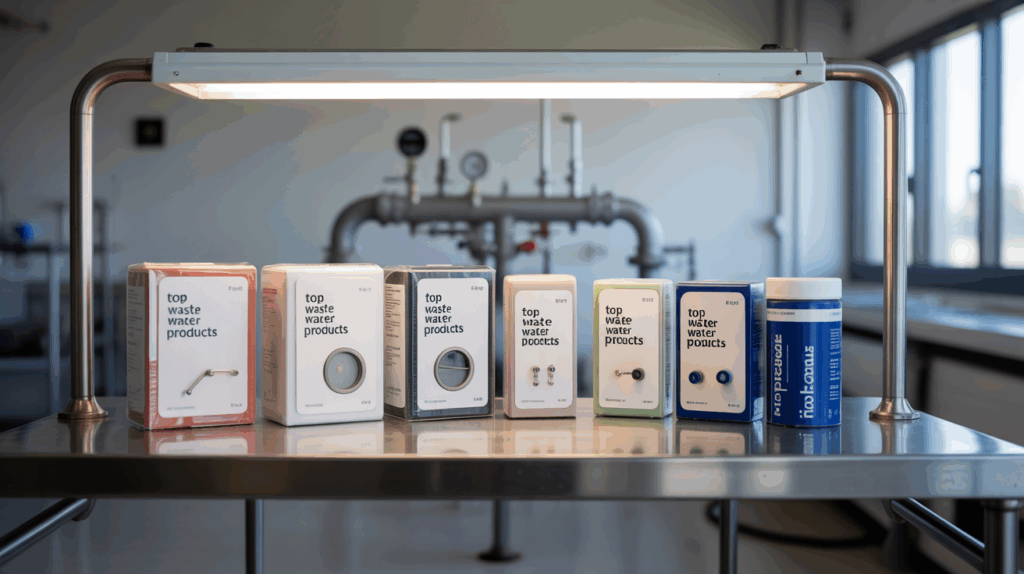
Smart Sensors for Monitoring Waste Water Quality
The integration of smart sensors represents a significant advancement in addressing water quality issues within the water treatment industry. These sensors actively monitor various parameters to assess water quality in real-time, ensuring that water safety standards are maintained. By employing water reuse technology, smart sensors facilitate integrated water reuse solutions, which are essential for managing future water supplies. This technology not only enhances the efficiency of total wastewater infrastructure but also reduces the financial burden associated with costly sewage collection by optimizing treatment processes.
The application of smart sensors contributes to the identification of water pollution treatment needs across various water supplies. As a result, these devices play a crucial role in achieving high-quality water standards and enhancing overall system reliability. With the growing focus on sustainability, the introduction of these top waste water products for efficient water management in 2025 will likely streamline operations and improve resource allocation in the water treatment industry, fostering a cleaner and safer environment for all.
Energy-Efficient Waste Water Pumps
The wastewater management sector is evolving rapidly, driven by the need to optimize water usage and ensure sustainable practices. Energy-efficient pumps play a crucial role as part of the top waste water products for efficient water management in 2025. These pumps enhance the functionality of wastewater management plants by reducing energy consumption while effectively transferring waste materials. As the demand for clean wastewater and water reuse technologies increases, these advanced pumping systems become integral to achieving circular water solutions.
Innovative energy-efficient designs are transforming how combined water utilities operate. By integrating energy-saving pumps within water systems, facilities can significantly decrease operational costs while improving efficiency. This shift not only fulfills regulatory requirements but also aligns with broader trends in water science and integrated water management. As municipalities target the reduction of their carbon footprints, these pumps will be indispensable in achieving the goals of sustainable wastewater management forms that prioritize conservation and resource recovery.
Sustainable Practices in Waste Water Management
Efficient wastewater management is crucial for modern water sector technologies, particularly as the demand for reliable wastewater treatment increases. Top Waste Water Products for Efficient Water Management in 2025 will emphasize ai-driven wastewater management and real-time water quality monitoring, allowing water companies to optimize their resources. Residential wastewater customers will benefit from advanced wastewater infrastructure that effectively tackles water pollution through innovative treatment solutions. Strategies such as bidding waste management and in-house wastewater management will play a significant role in enhancing sustainability and reducing environmental impacts, positioning these practices at the forefront of the ongoing evolution in the water sector.
- Improved energy efficiency through the use of renewable energy sources in treatment plants
- Implementation of closed-loop systems to recycle and reuse treated wastewater
- Adoption of smart sensors and IoT technology for continuous monitoring and maintenance
- Enhanced community engagement and education on wastewater reduction strategies
- Integration of sustainable landscaping and green infrastructure to minimize runoff
- Collaboration between public and private sectors for innovative solutions
- Regular assessments and updates of wastewater management policies to reflect new technologies and practices
Reuse and Recycling of Treated Water
The trend towards the reuse and recycling of treated water is reshaping the wastewater sector. Innovative water treatment processes are now capable of transforming ecological wastewater into high-quality, usable resources. This shift is crucial as large wastewater plants increasingly focus on efficient water purification methods that not only address daily waste but also contribute to sustainable potable water supplies. As the demand for reliable water sources grows, the Top Waste Water Products for Efficient Water Management in 2025 are likely to include advanced systems that enhance the reuse of treated water.
Monitoring water quality has become a fundamental component of successful wastewater treatment trends. Effective wastewater treatment solutions ensure that recycled water meets safety standards for various applications, from irrigation to industrial use. Conventional wastewater processing techniques are being supplemented with cutting-edge technologies that enable real-time assessment of treated water quality. As such developments surge, the wastebook offers a platform showcasing the Top Waste Water Products for Efficient Water Management in 2025, paving the way for a more sustainable approach to water resource management.
Integrating Green Infrastructure
The integration of green infrastructure into wastewater systems plays a crucial role in enhancing the efficiency of Top Waste Water Products for Efficient Water Management in 2025. Innovative water management strategies can significantly reduce wastewater generation while improving water quality monitoring. By utilizing natural processes, such as biofiltration and constructed wetlands, water agencies can conserve water sources and promote water purity. This approach not only addresses the challenges of treating hot wastewater but also supports the sustainable use of natural water resources.
Green infrastructure promotes the concept of waste conversion, transforming potential pollutants into useful resources. Implementing such systems offers dual benefits: mitigating the impact of urban runoff and enhancing wastewater treatment industry practices. As water agencies adopt these sustainable methods, they contribute to a regulatory framework that prioritizes efficient water management. The emphasis on conservation and resource recovery aligns perfectly with the vision for the Top Waste Water Products for Efficient Water Management in 2025, creating a resilient infrastructure that meets both current and future demands.
Regulatory Trends Influencing Waste Water Technologies
Regulatory trends are increasingly shaping the landscape of wastewater technologies, emphasizing the need for efficient sewage treatment and innovative wastewater filtration. The push for water reuse approaches is becoming crucial, particularly in the context of household water quality and industrial wastewater reuse. This shift drives the development of top wastewater products for efficient water management in 2025, which incorporate smart water technology for real-time monitoring and insights. As municipalities and industries adopt distributed wastewater treatment systems, the focus on managing various wastewater streams effectively is paramount. These advancements offer significant potential for enhancing treated water quality, contributing to improved water surface ecosystems, and ensuring sustainable water management practices.
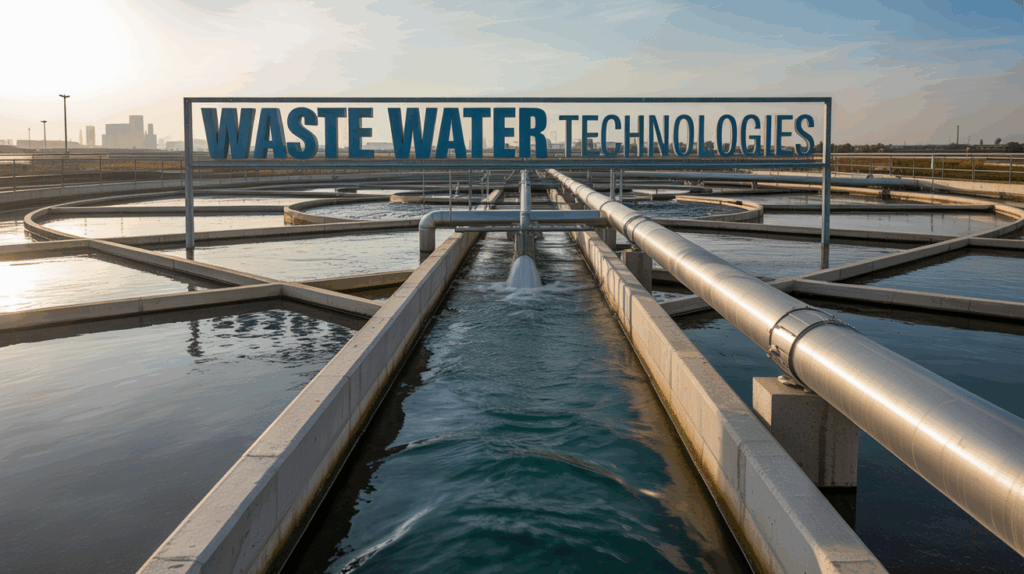
Upcoming Legislation and Standards
The evolving landscape of water management is witnessing an increased emphasis on upcoming legislation aimed at enhancing efficiency in wastewater treatment. Regulations are pushing for the adoption of zero-waste technologies and high-performance water filtration systems across wastewater plants. With heightened scrutiny on process wastewater treatments, the agricultural industry waste is also being targeted for stricter compliance. These measures ensure that diverse water quality is adequately addressed, promoting the implementation of Top Waste Water Products for Efficient Water Management in 2025.
New standards are set to revolutionize the water sector by mandating systems that prioritize water loss control and the effective management of on-site wastewater systems. Upcoming legislation will require wastewater plants to adapt by integrating advanced technologies that can handle varying water content and meet the demands of proper wastewater treatment. As a result, several waste treatment solutions are emerging, aligning with the overall goal of sustainable water management for future generations, encapsulating the essence of the Top Waste Water Products for Efficient Water Management in 2025.
Impact of Environmental Policies on Product Development
Environmental policies play a crucial role in shaping the development of Top Waste Water Products for Efficient Water Management in 2025. Stricter regulations aimed at reducing pollutants in wastewater on-site have driven innovative water sector solutions that enhance the filtration process. Companies specializing in wastewater intelligence recognize the need to address global water challenges while improving drinking water sources. As a result, advancements in water monitoring systems and outstanding water filters are essential for optimizing the wastewater cycle and ensuring the integrity of the circular water economy.
The emphasis on sustainable practices has stimulated the creation of efficient water-infrastructure and sewage-plumbing systems. As environmental policies evolve, product developers are focusing on energy-efficient solutions that meet the increasing water demands of urban areas. These innovations not only comply with regulatory standards but also contribute to a more resilient water management framework. The integration of these Top Waste Water Products for Efficient Water Management in 2025 showcases the commitment of the industry to tackle pressing environmental issues while fostering a sustainable future for all.
Case Studies: Successful Implementation of Waste Water Solutions
Successful implementation of innovative wastewater solutions exemplifies the importance of investment in Top Waste Water Products for Efficient Water Management in 2025. Traditional wastewater treatment often faces challenges such as water loss and inefficient clean disposal methods. However, by utilizing advanced residential water purification systems, communities can effectively separate water from domestic wastewater effluent, ensuring superior water quality—key to addressing large-scale water issues. Reliable sewage treatment processes, which incorporate techniques like centralized wastewater treatment and hot water outputs, contribute significantly to sustainable practices. These advancements not only enhance treatment efficiency but also promote the reuse of treated water, bolstering overall water management strategies.
- Advanced residential water purification systems help improve overall water quality.
- Centralized wastewater treatment can enhance sewage processing efficiency.
- Hot water outputs from treatment processes promote effective waste disposal.
- The reuse of treated water contributes to sustainability in water management.
- Investment in innovative wastewater solutions is crucial for addressing water scarcity.
- Communities adopting these technologies report improved environmental health.
- Collaborative efforts among stakeholders are essential for successful implementation.
Conclusion
The landscape of wastewater management continues to evolve, especially with the introduction of the Top Waste Water Products for Efficient Water Management in 2025. Addressing challenges like unpredictable water availability has become crucial as households grapple with the demands of domestic wastewater treatment. These innovative solutions leverage advanced water treatment technologies, ensuring that house wastewater is processed effectively while safeguarding drinking water assets. By utilizing enhanced wastewater monitoring tools and integrating renewable waste feedstocks into treatment systems, communities are now able to optimize their natural water resources, paving the way for sustainable practices that bolster overall water resilience. The focus on these top products reflects a commitment to enhancing both efficiency and environmental stewardship in the management of water resources.
FAQS
How can waste-water innovations contribute to sustainable wastewater treatment in urban areas?
Innovations in waste-water management play a crucial role in enhancing the quality of water through sustainable wastewater treatment methods. By implementing robust waste water solutions and water saving products, cities can significantly improve their water sources conservation efforts. Moreover, the reuse wastewater initiatives not only help in tackling water pollution but also offer insights into modern water monitoring. As platforms like wastebook facilitate the sharing of wastewater intelligence, the new water sector continues to evolve, emphasizing the importance of wastewater treatment—into ensuring cleaner water for future generations.
What are some of the best solid waste management practices that modern water management companies are implementing in 2025?
In 2025, leading modern water management companies are focusing on integrating solid waste solutions and utilizing platforms like Wastebook that offers a comprehensive approach to manage waste. Companies like Watermart are providing innovative wastewater insights, while wastewater intelligence companies are enhancing the efficiency of water-infrastructure and sewage-plumbing systems. By leveraging wastewater on-site solutions, these practices aim to optimize resource recovery and improve overall environmental management.
How can a wastewater intelligence company improve efficient water management in urban areas?
A wastewater intelligence company, like the one offered by wastebook, provides a platform for innovative solutions that enhance wastewater on-site management and improve overall water-infrastructure and/or sewage-plumbing systems. This leads to better treatment practices and supports sustainable water management in urban environments.
How does the wastebook offers platform enhance wastewater on-site management in urban areas?
The wastebook offers platform enhances wastewater on-site management by providing real-time data analysis and monitoring solutions, ensuring that urban areas can effectively and efficiently manage their wastewater resources. By integrating advanced technologies, it facilitates better decision-making and promotes sustainable practices in wastewater treatment processes.
How do various technological advancements improve wastewater on-site management for urban sustainability?
Technological advancements play a crucial role in enhancing wastewater on-site management, enabling urban areas to better address their waste management challenges. By integrating smart sensors and data analytics, cities can monitor and optimize their wastewater systems, leading to more efficient operations and reduced environmental impact. These innovations not only enhance the effectiveness of wastewater on-site management but also support broader sustainability goals within urban planning and development.
What are the benefits of using wastewater on-site management systems in urban settings?
Wastewater on-site management systems offer numerous benefits for urban areas, including improved efficiency in processing sewage, reduced pollution levels, and enhanced resource recovery. By implementing advanced wastewater on-site techniques, cities can better manage their waste, conserve water, and promote sustainable practices that protect the environment.
What strategies can urban planners implement to enhance wastewater on-site management systems in cities?
Urban planners can implement various strategies to enhance wastewater on-site management systems in cities, such as incorporating advanced technology, promoting community awareness, and ensuring compliance with environmental regulations. These practices aim to optimize the performance and sustainability of wastewater on-site systems, allowing for better resource recovery and reduced environmental impact.
What are the challenges faced when implementing wastewater on-site management systems in urban environments?
Implementing wastewater on-site management systems in urban environments can present several challenges, including space limitations, regulatory compliance, and the need for public education about the benefits of wastewater on-site solutions. Additionally, ensuring proper technology integration to meet the unique demands of urban settings is crucial for effective wastewater on-site management.
What are the key advantages of adopting wastewater on-site management systems in urban developments?
The key advantages of adopting wastewater on-site management systems in urban developments include improved efficiency in resource use, reduction in the environmental impact of wastewater, and enhanced sustainability. These systems allow for localized treatment of wastewater, leading to better sanitation and the ability to recycle water for various uses in urban settings. By implementing wastewater on-site solutions, urban areas can effectively manage water scarcity and promote a sustainable future.
How does wastewater on-site management improve environmental sustainability in cities?
Wastewater on-site solutions are crucial in enhancing urban environmental sustainability by effectively treating wastewater on-site, thus reducing pollution and promoting efficient resource use. These systems contribute to sustainable practices by enabling cities to manage their wastewater on-site, minimizing the need for large-scale infrastructure and fostering a holistic approach to urban water management.
